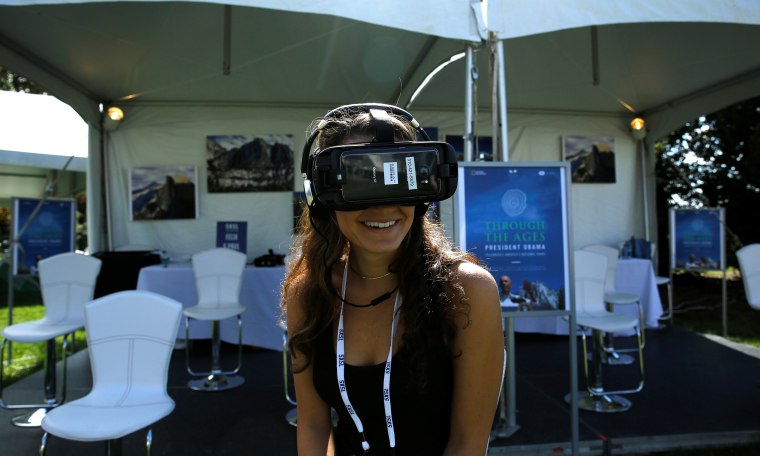If you're wondering what exactly are the uses of Virtual and Augmented Reality in everyday life, you're not alone. Yet these technologies are growing at a swift pace and several Latinas are among the leaders of this exciting field.
Virtual reality (VR) is a computer-generated artificial simulation of reality; our senses react as though we really are in these places or situations, interacting with them. Augmented reality uses technology to add artificial elements to real life to allow users an enhanced interaction with their surroundings.
According to Virtual Reality Society, "there are many different types of virtual reality systems but they all share the same characteristics such as the ability to allow the person to view three-dimensional images. These images appear life-sized to the person."
VR is more popularly known for its uses in gaming and entertainment, but it can also be applied for research in science, medicine and even the arts.
Not only are these technologies cutting edge, they're also lucrative. According to the Digi-Capital revenue forecast of January 2016, Augmented and Virtual reality is expected to become a $120 billion industry by 2020.
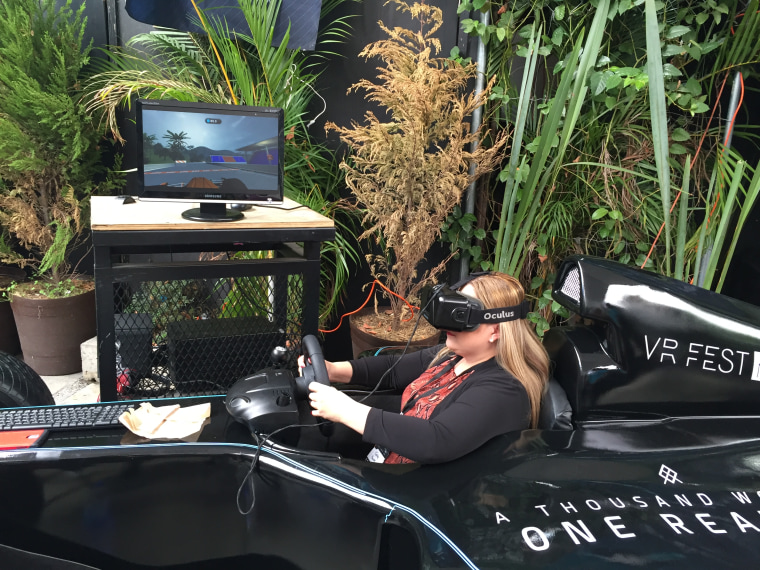
Here are three Latinas who are not only breaking the glass ceiling in these fields, but are fervent mentors to young minority women interested in the S.T.E.A.M (Science, Tech, Engineering, Arts + Design and Math) sector.
Cecilia Abadie, Senior Customer Success Engineer at Meta
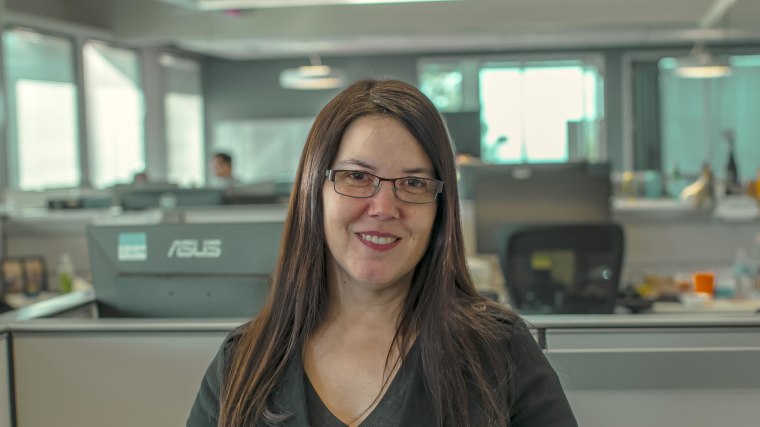
Cecilia Abadie, 47, helps developers and customers rethink the way people are able to manipulate digital objects or holograms, using the findings of neuroscience research.
Of Uruguayan descent, Abadie helped bring smart glasses solutions to Fortune 500 companies as Engagement Director at APX Labs. Before that as a Google Glass Community Leader, she developed avant-garde wearable applications and evangelized about wearable computing.
Meta produces Augmented Reality, or AR headsets, which joins the digital and the real world through the use of special glasses. Abadie’s role in the company is to enable developers, early adopters and beta testers of the product to enjoy the best possible experience.
“This is a fairly new platform, so there's plenty of excitement [that comes with] being a part of creating the next computing interfaces,” Abadie said.
She believes there are so many Latinas involved in these fascinating new technologies because “Latinas add to the typical benefits of being women by bringing in the cultural background, the warmth and focus on the relationships and communication between all involved parties which in the end are a huge part of every business success.”
Abadie takes advantage of speaking engagements in Spanish-speaking countries such as Uruguay, Argentina, Honduras, Colombia and Spain to mentor other women who want to be involved in the fields of these cutting-edge technologies.
RELATED: 'Latina Girls Code' Trains, Empowers Young Women for Tech Careers
“My most rewarding moments were seeing young Latinas inspired by the positive uses of technology and leaving the audience with a feeling of hope that technology can help us change lives for the better and make a better world when we steer it the right way,” Abadie said.
She advises other women to take the plunge if they are toying with the idea of entering this field.
“By jumping in early there's an incredible opportunity of contributing to shape these new technologies and make them more inclusive, human and useful.”
Gemma Busoni, Head of Community at Discovr Labs
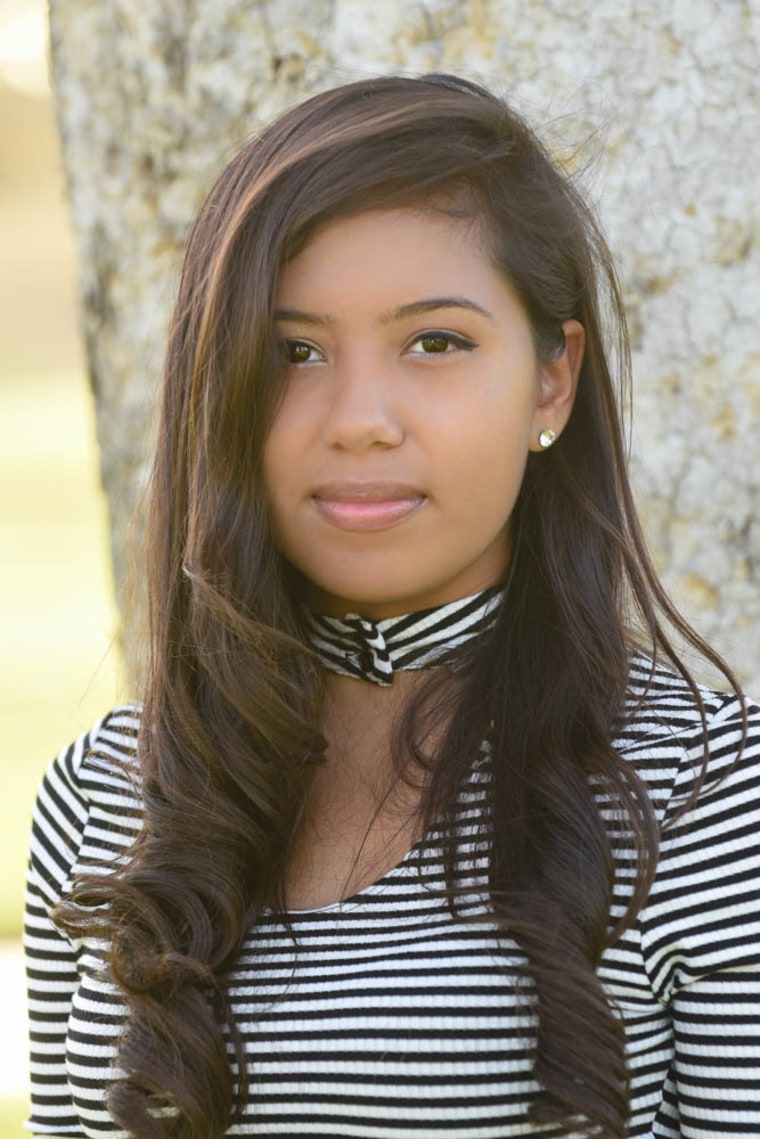
Discovr Labs brings Virtual reality to education by building VR applications and the systems to use them. Busoni's role in Discovr is varied: “Lots of helping with product development, engaging with the education community, talking to teachers, discussing with potential customers, gathering feedback, staying on top of VR development/new technologies, going to speak at events, etc.”
Busoni, who is of Salvadoran heritage, believes that there are so many Latinas at the forefront of these cutting-edge technologies because our culture "is full of folklore, word of mouth tales, and all sorts of storytelling. VR provides a creative outlet where Latinas can share their stories and ideas with the world using bleeding-edge technology.”
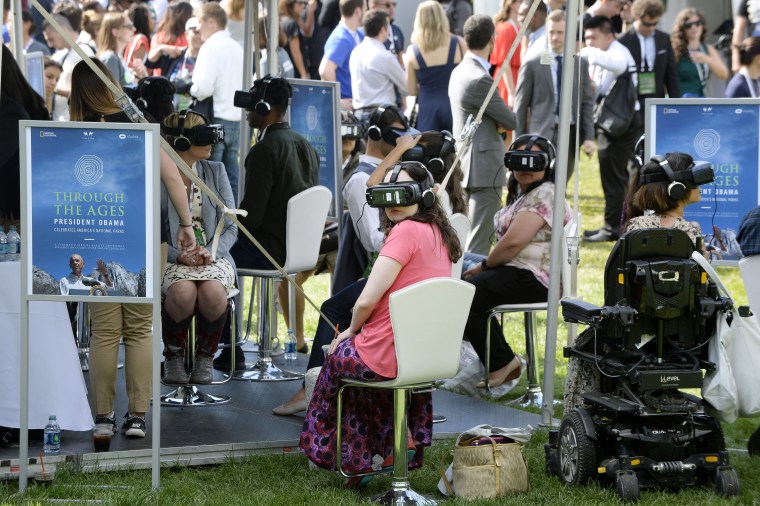
Busoni always had a passion to make computer science and technology more accessible. As a student in downtown Los Angeles where CS classes were hard to come by, she took action and started a nonprofit, Downtown Hackers, that helped inner-city students have access to CS and S.T.E.M. [Science, Technology, Engineering and Mathematics] resources. Her organization eventually merged with Hack Club, a nonprofit that helps students around the world start coding clubs.
RELATED: Latina 'Geek Goddess' Elianne Ramos Joins Clinton's Digital Team
The San Francisco-based Latina is also an advisor at Hacker Fund, which provides CS mentorship for students, as well as fiscal sponsorship support for students organizing hackathons.
When asked about her young age - she is 18 - this is how she says she deals with skeptics: “I've found my age makes some situations difficult. I usually avoid telling people my age in professional settings, if I can. Many people are likely to doubt your experience and abilities due to your age, but there are many people who aren't deterred and are determined to help you regardless.”
Her words of advice to her peers: “Always ask for help; the worst anyone can say is no. Reach out for mentorship, guidance, help learning to build something — the VR community is awesome, and in order to ensure that VR really hits it big this time, we need to work together.”
Cathy Hackl, Founder of Latinos in VR/AR, content strategist for VR Salon, contributing author at VR Scout.
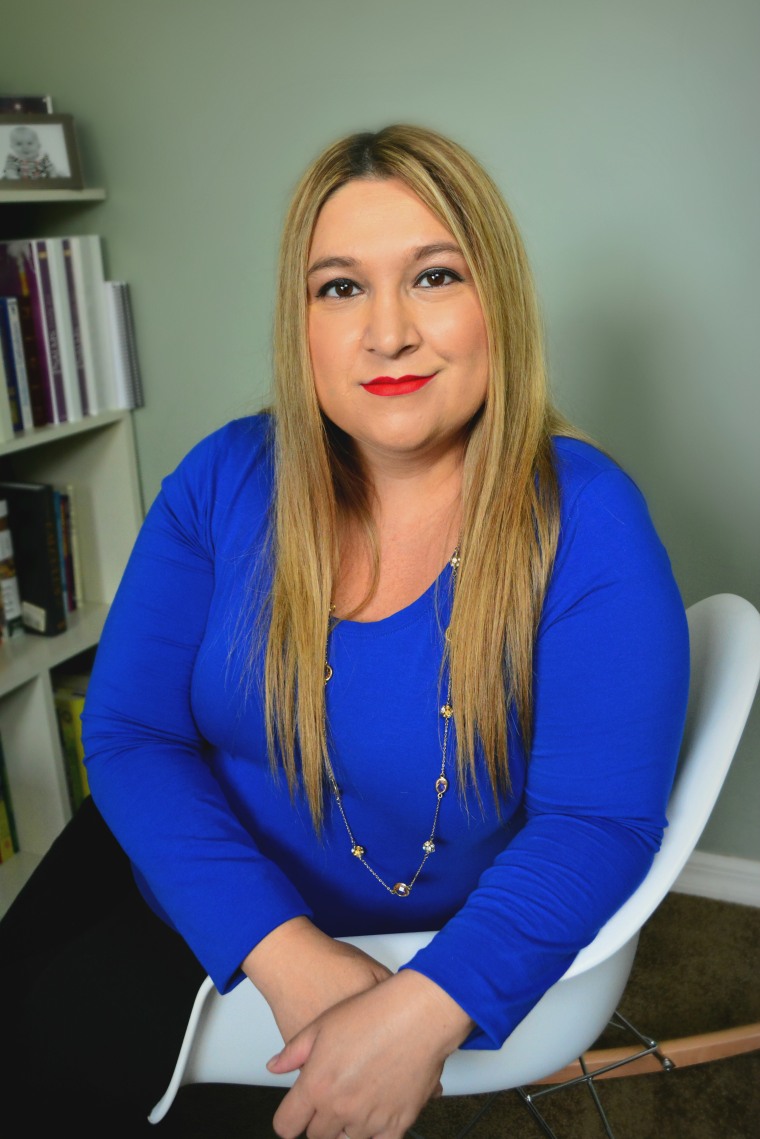
VR Salon is an international community of VR & AR creators, influencers, actors, producers, and directors connecting talent, stories, and funding. VR Salon's current project is a SocialVR documentary with ERASE Childen Trafficking and Zeality VR.
Hackl, 37, started her professional career as a journalist. Of Costa Rican descent, she says that when she first attended the Journalism Interactive conference, she realized Virtual Reality was the future of storytelling.
When she worked for CNN in 2004, part of her responsibilities involved watching raw feeds from disaster areas and war zones. She recalls it as being a gruesome ordeal.
“Now it seems like some people seek out that kind of content. But I believe that, with the rise and the promise of innovation in virtual reality, augmented reality, and 360-degree video, there is a new chance to regain what makes us human, empathy," said the Florida-based Hackl. "As video continues to transform the way we communicate and consume information, immersive storytelling will help us recover the individual experience that has been lost and lead to positive social change.”
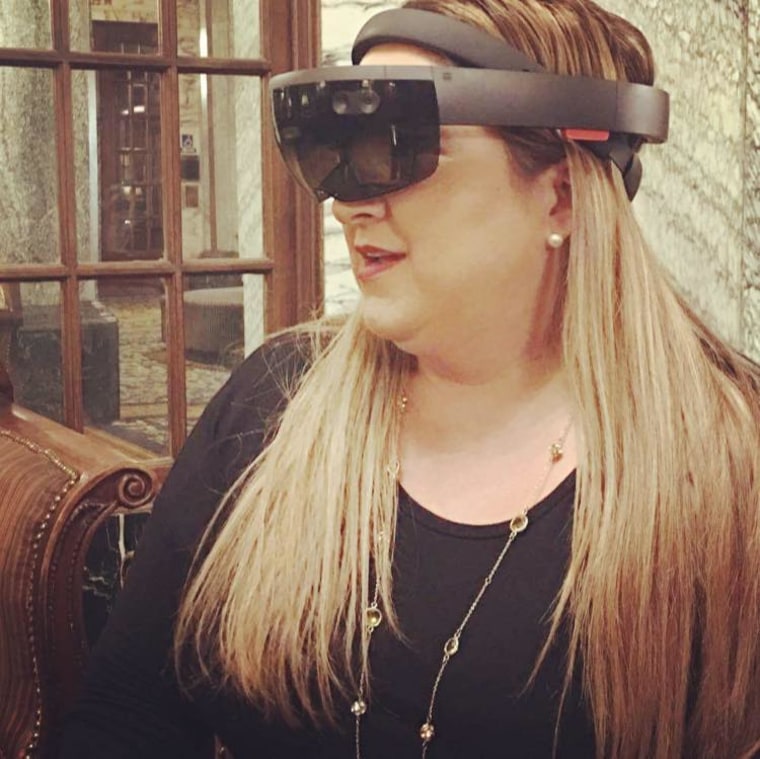
Through her advisory work with VR Salon, Hackl got involved with ERASE Child Trafficking, a nonprofit that seeks to eliminate the trafficking and exploitation of children worldwide. She is now part of a team that is working on a VR documentary on the topic. Their goal with this project is to use the technology for social good and use VR's qualities to create empathy and impact change.
“I love the fact that women, and especially Latinas, are pioneering virtual reality, augmented reality, mixed reality and 360 video. There is a sisterhood brewing and we have a chance to inspire and mentor more girls to become part of this virtual revolution,” Hackl said in an interview.
She enjoys mentoring young minority women and the way she helps them is by connecting all Latinas she meets in the VR sector.
“I'm trying to connect Latinas who are crushing the VR ceiling and create an amazing community.”
Her advice to other women who want to pursue a career in Virtual Reality: “Don't be scared to jump in! You don't have to be a coder or a developer to get involved. There are many opportunities for women in marketing, communications, sales, [and other areas] to be a part of this seismic technological shift.”
RELATED: Getting Young Latinas in Tech and Science, the DIY Way
Hackl advises all content creators to explore VR technologies.
“I also think bilingual Latinas should pay attention too. While the hardware is universal there will be need for content that is culturally relevant and also in our own language.”
